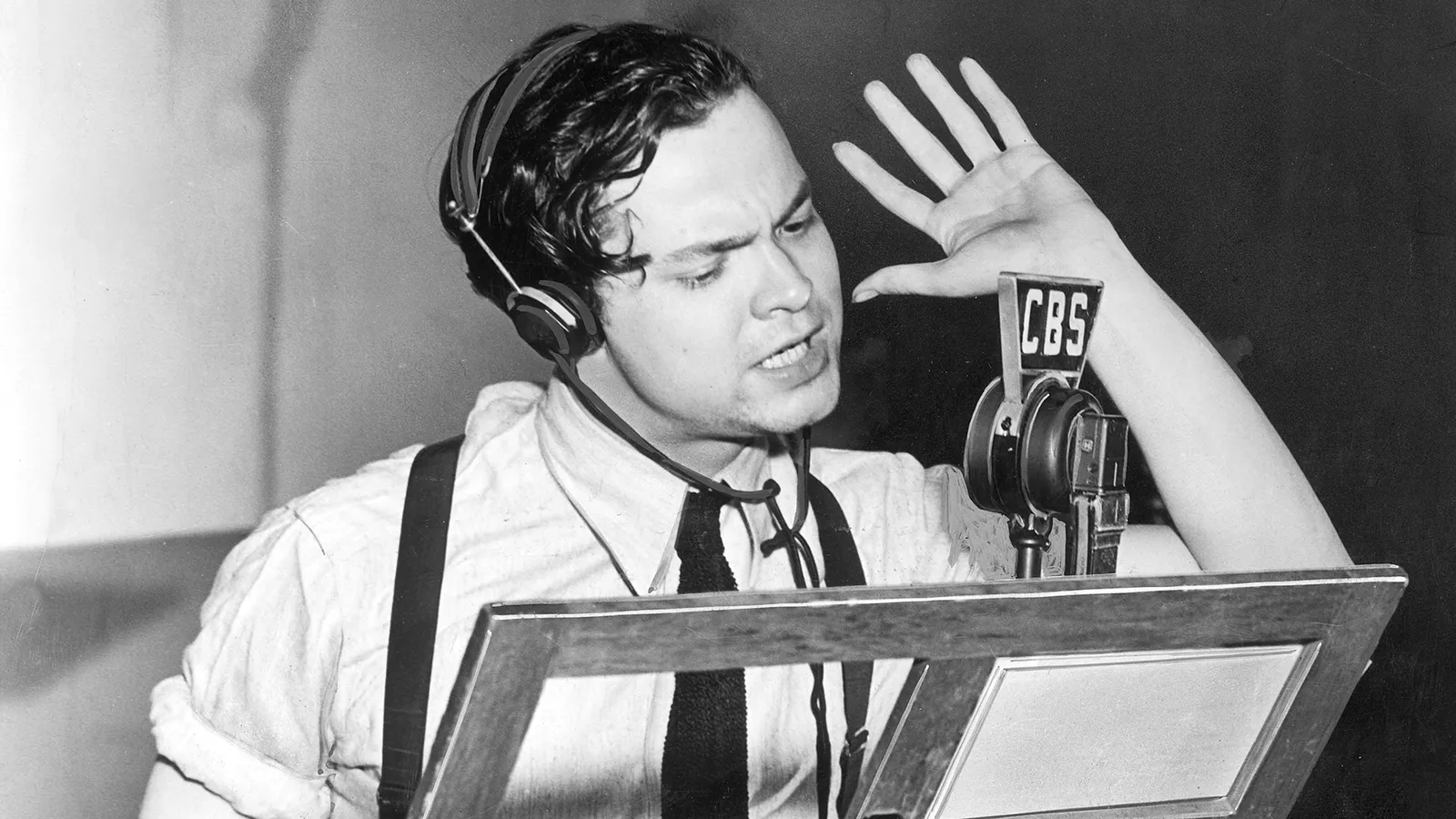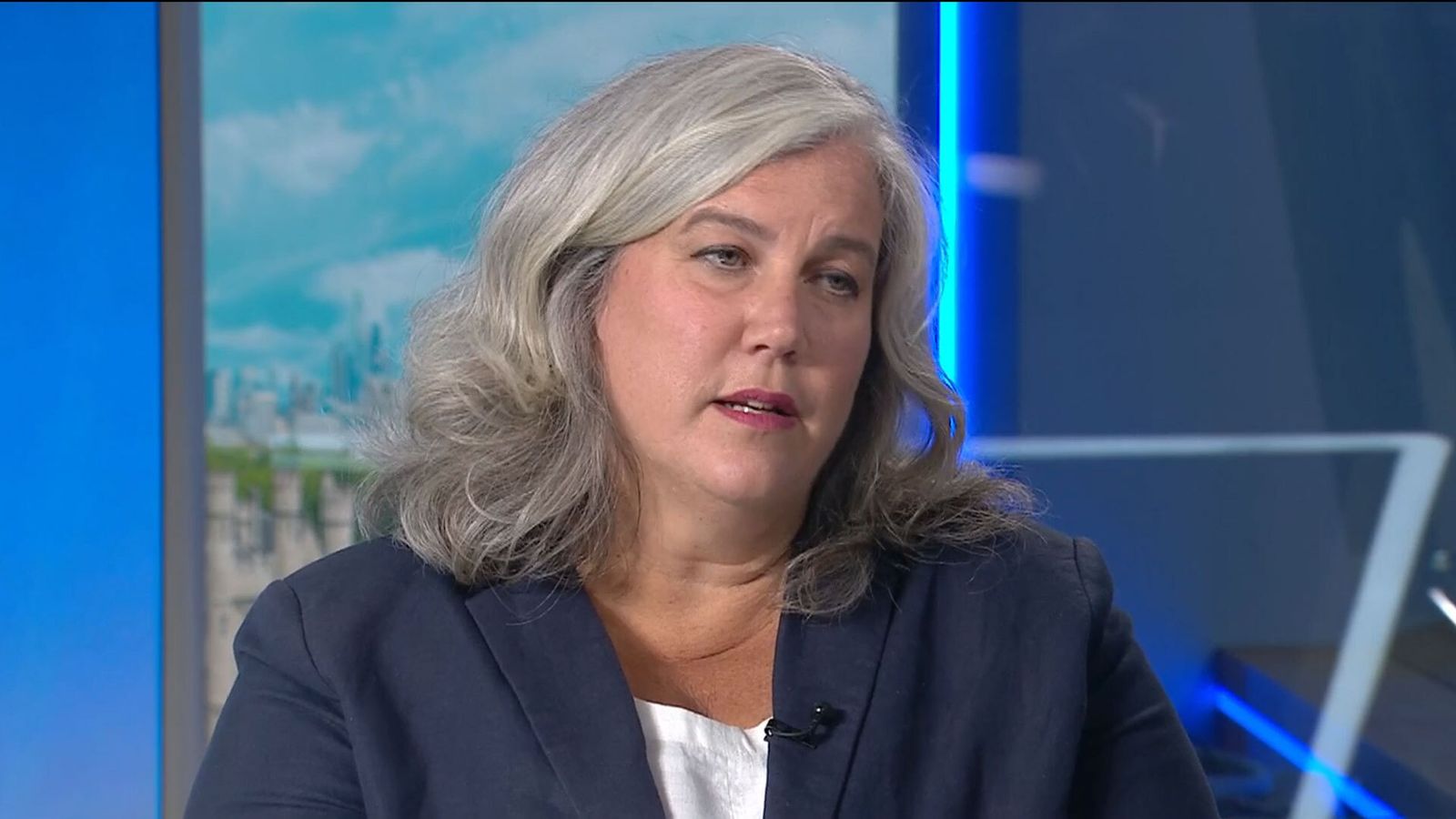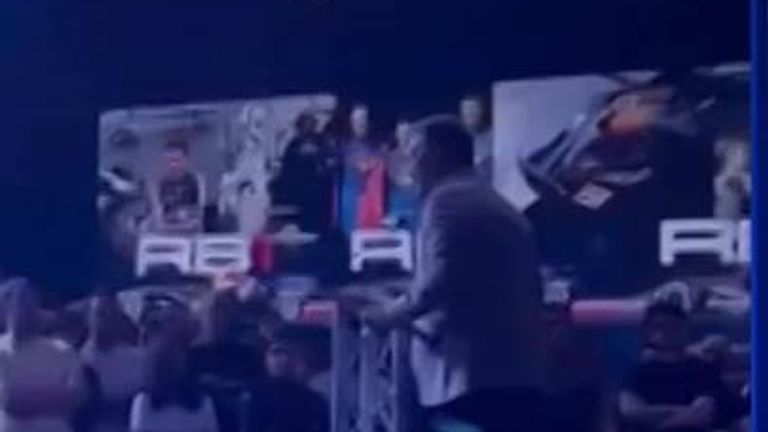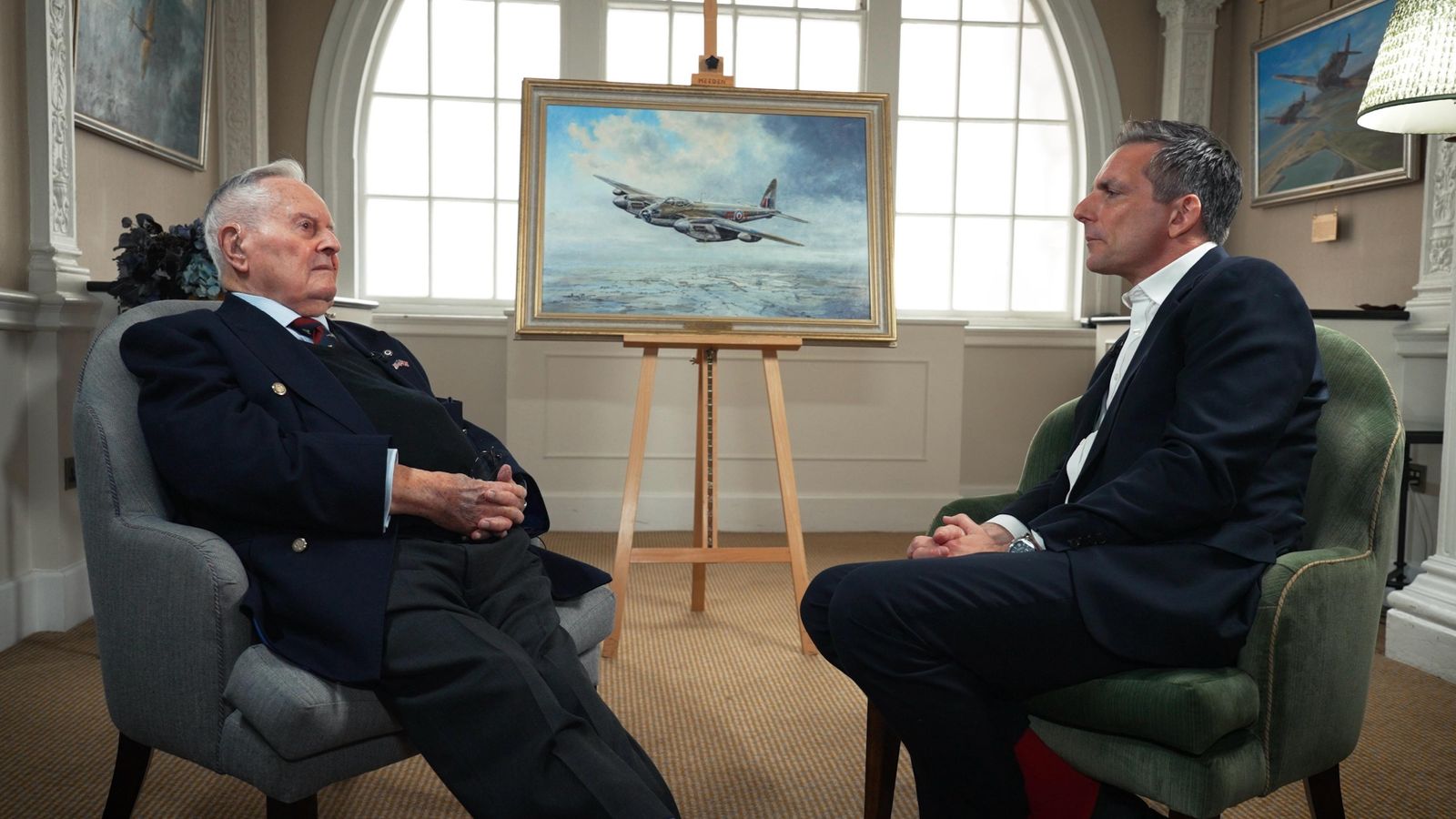'I had no idea I'd become a national event': Orson Welles on the mass hysteria of The War of the Worlds
On 30 October 85 years ago, the population of the US was – according to Orson Welles – overwhelmed by mass panic, terrified by the all-too-real broadcast of his alien-invasion drama The War of the Worlds. The director recounts his version of events in an interview from the BBC archive.

It's an incident that has been much referenced in popular culture – the broadcast, 85 years ago today, of Orson Welles's radio drama about a Martian invasion of Earth was so realistic, it is said, that it triggered widespread panic in the US. Indeed, the story of mass hysteria has become so ingrained in media folklore that for decades it wasn’t really challenged.
But in recent years historians, such as Professor W Joseph Campbell of the American University in Washington DC, have argued that the supposed panic was always exaggerated, and that the majority of listeners understood that the programme was a work of fiction.
The idea of a nation plunged into hysteria was actively pushed by newspapers at the time, who were keen to characterise radio – then an emerging medium that was a news competitor – as irresponsible and not to be trusted. And Orson Welles burnished the myth himself over countless retellings on talk shows in the years that followed.
But while it is unclear to what extent actual panic was caused, certain facts remain – chiefly, that the broadcast demonstrated the early power and potential of radio.
On the evening of 30 October 1938, just before Halloween, Welles, then the director and star of radio drama series the Mercury Theatre on the Air, was running through last-minute rehearsals for his innovative new broadcast.
Welles was only 23 years old at the time, and regarded by many as a prodigy – this was his most ambitious project yet, an update of The War of the Worlds, a science-fiction thriller by HG Wells, published in 1898.
His plan was to bring Wells's story alive by setting it in the modern day, creating a sense of urgency and fear. He changed the location from England to New Jersey, and had the story rewritten as a series of realistic news bulletins reporting an unstoppable alien invasion from Mars, in what sounded like real time, and so blurring the lines between reality and fiction. "We did that all very carefully and exactly reproduced what would have happened. Thinking to make the whole thing more effective. But we had no idea how effective it would be," he said in a 1955 episode of a BBC series called Orson Welles's Sketch Book.
Circumstances provided the perfect backdrop for the production. Radio by this time was rapidly replacing newspapers as the place where most Americans found out about the daily news. There was also a general feeling of anxiety about another conflict in Europe, and as the events that drove the world towards World War Two accelerated, US audiences were becoming increasingly familiar with major news events interrupting scheduled radio programmes.
At 8pm Eastern Time, the broadcast began with Welles himself introducing the drama and, clarifying that it was a work of fiction. But listeners who tuned in late missed his disclaimer, while some who heard it didn’t really register what he was saying, or simply forgot it as the drama progressed.
Mars attacks!
What then followed was a regular music programme familiar to listeners, interrupted by a series of increasingly frantic simulated breaking-news bulletins. The actors portraying reporters and government officials breathlessly described the arrival of the alien invaders, and these descriptions were combined with chillingly realistic sound effects of the aliens' deadly heat rays – and the destruction of entire cities.
The effect was compelling, and terrified listeners. The drama's documentary style and naturalistic dialogue meant some even mistook it for a real news broadcast. Newspapers later reported that anxious listeners, believing that the end of the world was imminent, tried to flee their homes, while others gathered weapons and prepared to defend themselves against the aliens.
Phone lines became jammed as alarmed listeners tried to call police and newspapers to find out information or to get reassurance. This influx of calls may have convinced many journalists that the show was causing a nationwide panic.
Soon, the police turned up at the CBS studio where the drama was being performed, and a struggle broke out between the cops and radio executives, who were desperately trying to prevent them bursting in and stopping the show.
Welles, who was in the midst of the play, only realised the effect it was having “because about halfway through the show as we were continuing with the script in front of us, we saw that in the control room there were a great many policemen, and every moment more. I had no idea that I had suddenly become some sort of national event."
Immediately after our show went off the air, Walter Winchell, who was on a rival network and had heard about how all the telephone lines had been jammed , went on his programme of news commentary and said, 'Mr And Mrs America, there is no cause for alarm. America has not fallen. I repeat, America has not fallen'."
In the immediate aftermath, Welles and his team faced an intense backlash from the media and the government. The broadcast dominated the next day's newspaper headlines, with many journalists extrapolating from anecdotal accounts to make sweeping claims of panic-stricken Americans. This helped solidify the impression that Welles's show had created hysteria.
IN HISTORY
In History is a series which uses the BBC's unique audio and video archive to explore historical events that still resonate today.
There were threats of lawsuits, and calls for censorship and regulation of radio content. CBS hastily called a press conference, where Welles repeatedly denied that he had intended to deceive anyone. Ultimately the Federal Communications Commission investigated the incident and found no law had been broken, but networks did have to agree that they would be more cautious with future programming.
The scandal only served to boost Welles's reputation as a creative genius with a mastery of storytelling. It would go on to propel him to Hollywood, where he would direct and star in 1941's Citizen Kane, often cited as the greatest film of all time.
As this clip in the BBC Archive reveals, when asked about the broadcast afterwards, Welles, ever the raconteur, made a big claim about the lasting impact his show had on shaping public opinion. He recounted how, a few years later, news broke that Japan had launched a surprise attack on the US base in Pearl Harbor during a patriotic performance he was giving on radio.
"I was in the midst of some hymn of praise to the American cornfields or something of the kind," he recounts, "when suddenly, a gentleman darted into the radio studio, held up his hand, and said, 'We interrupt this broadcast to bring you an announcement: Pearl Harbor has just been attacked.' And of course this very serious and terrible news was never believed. Not for hours, by anybody in America, because they all said, 'Well there he goes again, really, rather bad taste, it was funny once, but not a second time'."
In the years since, there has been much debate about whether the level of panic the broadcast actually caused has been overstated, or indeed how many people actually heard the broadcast, as opposed to reading the newspaper reports about it. But regardless, it remains a landmark moment in broadcast history, and a testament to the power of storytelling to capture the imagination of an audience.
-bbc







